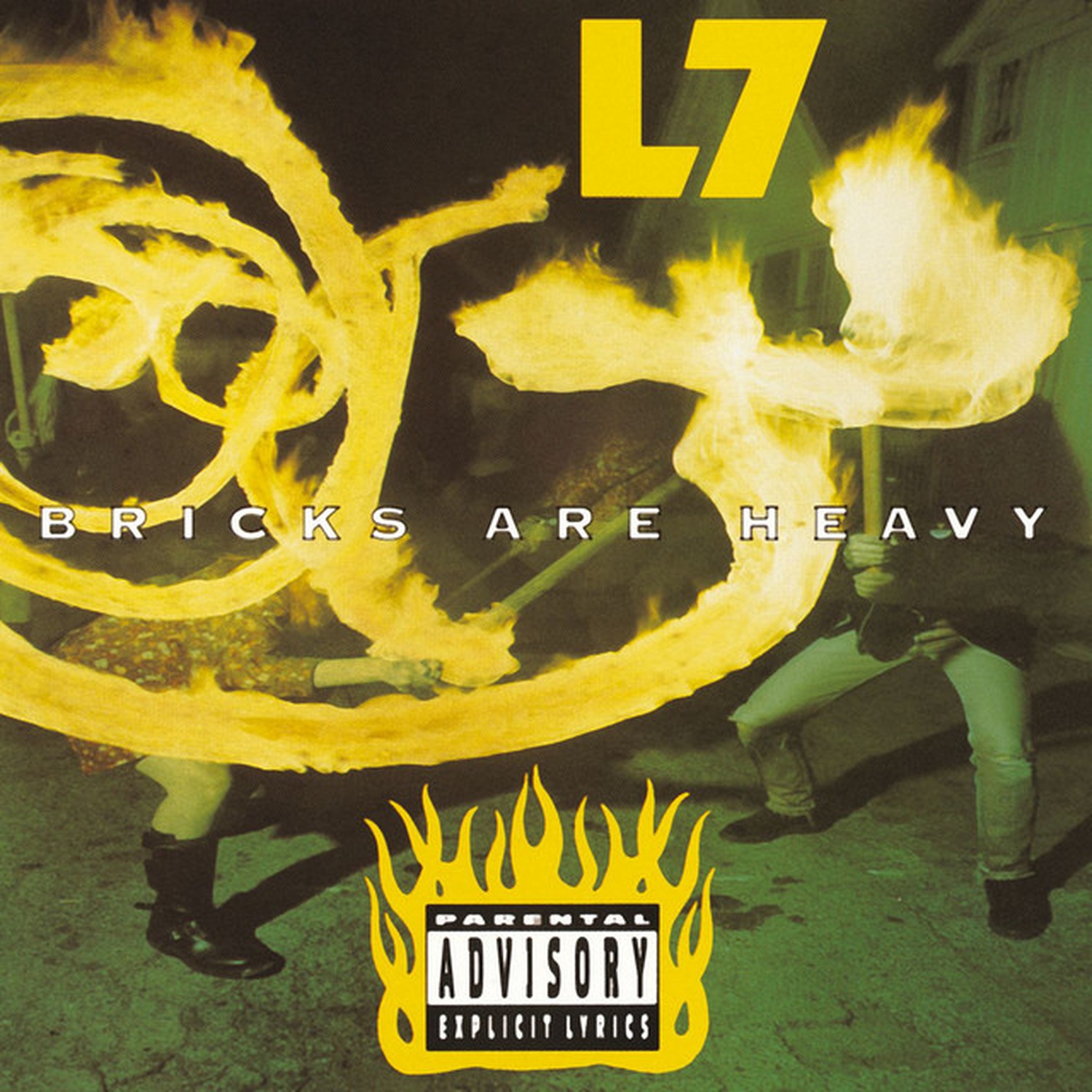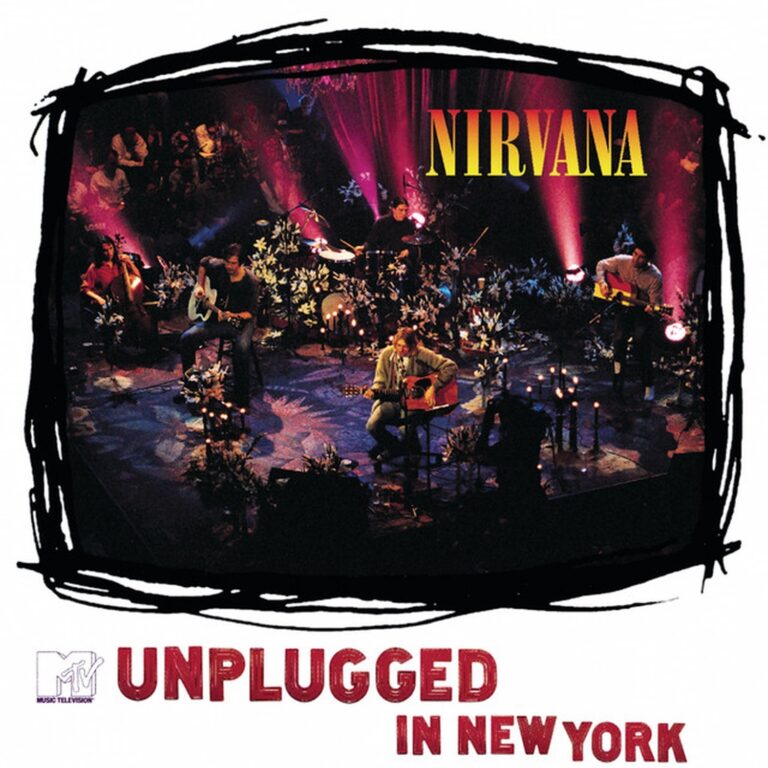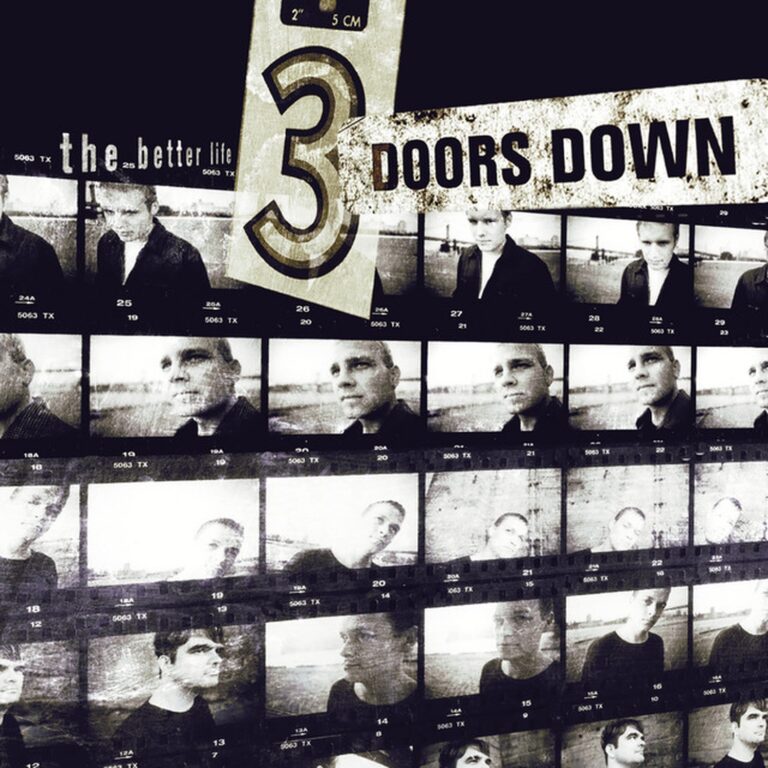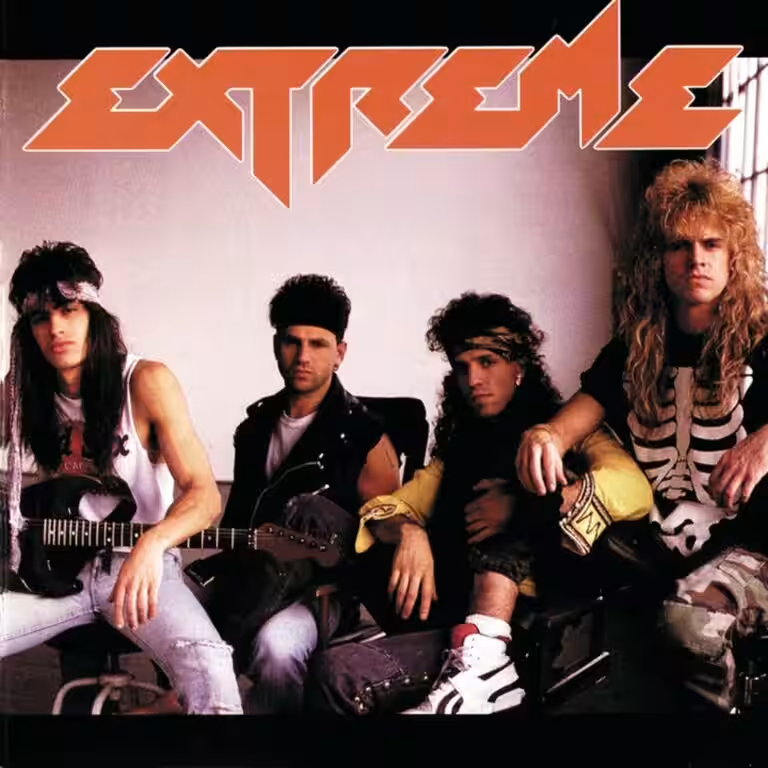
In April 1992, as grunge and alternative rock were exploding into the mainstream, Los Angeles quartet L7 dropped Bricks Are Heavy – an album so aptly titled that few records of the era hit with such weight. This was L7’s third album and their major-label debut, loaded with chugging riffs, sarcasm, and unapologetic attitude. It became their breakthrough, thanks largely to an irresistibly hooky single (“Pretend We’re Dead”) that brought these punk-metal feminists onto MTV and radio. Over 30 years later, Bricks Are Heavy remains the cornerstone of L7’s legacy – a classic of early ’90s alternative rock that still hits as hard as ever, mixing fun and fury in equal measure.
We did a full length podcast episode about this album here:
Setting the Stage: L7 Before Bricks Are Heavy
L7 formed in Los Angeles in 1985, founded by guitarist/vocalists Donita Sparks and Suzi Gardner. After a couple of early lineup changes, bassist Jennifer Finch and drummer Demetra “Dee” Plakas completed what became the band’s classic lineup by the late ’80s. From the outset, L7 were women on a mission to rock just as hard as any of their male peers – Sparks later noted they were “the first all-female band to sing as if gender were irrelevant” in the L.A. punk scene. They built a reputation as one of the fiercest live bands in town, whipping up slam pits reminiscent of the hardcore punk days.
L7’s early records came out on two of the most important indie labels of the era. Their self-titled debut landed in 1988 on Epitaph Records—right as Bad Religion were rebooting modern punk with Suffer and No Control, making L7 one of the first non-Bad Religion acts to appear on the label’s new wave of releases. By 1990, the band had moved to Sub Pop for Smell the Magic, joining a roster that included the rising Seattle heavyweights Nirvana, Mudhoney, and Tad, along with other early Sub Pop alumni like Soundgarden, The Fluid, and The Afghan Whigs. These labels were ground zero for late-’80s/early-’90s punk and grunge, and L7 fit right in: their sneering mix of punk energy and metal crunch marked them as kindred spirits to the Northwestern scene even though they were from Los Angeles. Some would even argue that L7 were pioneering grunge before the term fully solidified.
Beyond the music, L7 demonstrated a serious activist streak. In 1991 they co-founded Rock for Choice, organizing pro-choice benefit concerts that featured bands like Nirvana, Pearl Jam and the Red Hot Chili Peppers. This unapologetically feminist, political stance was part of L7’s identity from the start. As one retrospective noted, that viewpoint – coupled with their blistering sound – gave L7 “a hefty punch that still resonates” in their music. It also positioned them at the forefront of a growing wave of female-led rock bands (Hole, Babes in Toyland, 7 Year Bitch, etc.) and the emerging riot grrrl movement in the early ’90s. Bricks Are Heavy would be the album to capitalize on all this momentum and put L7 on the map worldwide.
Going Major & Recording the Breakthrough
By late 1991, with two indie records under their belt, L7 decided to take the leap to a bigger label for better distribution. They signed with Slash Records (a Warner Bros. affiliate) – a legendary L.A. label known for punk and alternative bands – which offered a larger budget and wider reach while still understanding L7’s roots. Bricks Are Heavy would be their first album with major-label backing, and the timing couldn’t have been better.
L7 literally walked into the Nevermind-fuelled alt-rock boom: Nirvana had exploded into superstardom in late ’91, proving that loud, gritty bands could top the charts. In fact, L7 were friends with Nirvana and even visited them in the studio during the making of Nevermind. There they met producer Butch Vig, the man behind Nirvana’s new massive sound. Impressed by what they heard, L7 essentially said, “We want that guy!” for their next record.
“We were basically following in the wake of Nirvana with that,” Donita Sparks later admitted about choosing Butch Vig. They were friends with Nirvana and “went down to Sound City to visit them… it was sounding great. We just thought, Butch was our guy.”
Vig agreed to produce Bricks Are Heavy, seeing big potential in L7. (Amusingly, Sparks learned years later that Vig had been told L7 “could be the next Nirvana” – one reason he took the gig. “I’m glad I didn’t know that at the time… that would’ve freaked me out,” she laughed.)
In late 1991 the band convened with Vig to record: they tracked drums at the famed Sound City studio in Van Nuys, then headed to Vig’s own Smart Studios in Madison, Wisconsin to record guitars, vocals and mix. This bi-coastal recording plan was partly budget-driven but also savvy – Sound City’s drum room is legendary, and Vig was incredibly picky about getting great drum and guitar tones. Sparks recalled that Vig was “super pro” and “incredibly meticulous” about things like tuning: “every string at every point… had to be completely in tune” before recording a take. That attention to detail was new for L7, who had come from a punky “just plug in and go” recording ethos. But it ultimately helped give Bricks Are Heavy a punchy, focused sound.
Crucially, though, the album didn’t sand off L7’s raw edges or attitude. Bricks Are Heavy “sounds clean, but never slick”, retaining the heaviness at L7’s core. Sparks herself was fully on board with making the songs more accessible: “I have no problem going from the underground to the mainstream. I thought it was cool. I wanted to get our message out… I liked getting on MTV, on David Letterman – whatever – just to say, ‘Hey, you’re not alone out there’.” She also embraced the idea of writing hookier songs. By 1992, after years of barnstorming noise, L7 had grown more confident as songwriters. Sparks in particular felt ready to “embrace her pop side more than ever before”, bringing out the catchy melodies lurking behind the distortion. “I love bubblegum… I prefer catchier stuff… I’ve always had that side, which I think I repressed a little bit,” Sparks said. The result of this growth was Bricks Are Heavy – 11 songs that are as melodic as they are ferocious, full of big guitar crunch, shout-along hooks, and a tongue-in-cheek sense of humor.
Bricks Are Heavy hit stores on April 14, 1992, riding the wave of alt-rock’s breakthrough year. It quickly became clear that this was L7’s moment. The album entered the UK charts at #24 and even grazed the Billboard 200 (peaking at #160, while hitting #1 on the Heatseekers chart for new artists). For a band that had been strictly underground a couple years prior, this was significant. L7 suddenly found themselves in heavy rotation on MTV and modern rock radio thanks to one song in particular…

Singles and Standout Tracks
The lead single “Pretend We’re Dead” was the game-changer for L7. Released just ahead of the album, this mid-tempo anthem of disaffection became an alt-rock hit, reaching the Top 10 on Billboard’s Modern Rock chart and hitting #21 on the UK Singles Chart. The band filmed a cheeky music video for “Pretend We’re Dead” (complete with demolition derbies and tongue-in-cheek protest signs) that earned them regular MTV airplay in 1992. Suddenly, these four grunge-punk women from L.A. were rubbing shoulders with the likes of Nirvana and Pearl Jam on the airwaves. They even performed the song live on The Late Show with David Letterman, bringing their “give-no-fucks” attitude to late-night TV.
So what made “Pretend We’re Dead” so special? Musically it’s one of L7’s more accessible tunes – built on a fuzzy, cyclical riff and a sing-along chorus that lodges in your head. But its spirit is still pure L7: sly, cynical, and just a bit subversive. Donita Sparks actually wrote the song in a moment of personal turmoil. “I hate telling this… but in all actuality, the ‘pretend we’re dead’ part came from me going through a breakup,” she revealed. Devastated by heartache, Sparks told herself she’d have to “pretend [that person is] dead” in order to move on. That darkly funny phrase sparked her creativity: “I was like, ‘Huh, pretend they’re dead… I’m not gonna write a song about them, but ‘pretend we’re dead,’ I like that.’”
From that seed, Sparks crafted lyrics that speak to a broader sense of apathy. She noticed many people her age were tuned-out politically – “they didn’t even vote… I thought, what the fuck, man? That’s the least you can do.” So the song’s verses call out societal complacency, while the chorus flips cynicism into anthemic irony. Sparks sings in a cool, deadpan voice, and the whole band leans into a laid-back, almost poppy vibe (by L7 standards). Drummer Dee Plakas adds memorable shout-outs in the breakdown, and Suzi Gardner delivers a backwards guitar solo in the outro. Critics immediately pegged it as the obvious hit – the most accessible song on the record.
Major Singles from Bricks Are Heavy (1992)
| Single | Release | US Modern Rock | UK Singles | Australia |
|---|---|---|---|---|
| Pretend We’re Dead | 1992 | #8 | #21 | #50 |
| Everglade | 1992 | – | #27 | #85 |
| Monster | 1992 | – | #33 | – |
(“Shitlist” was not an official single but became widely known through film/TV.)
“Everglade”
A snarling punk track written and sung by Jennifer Finch. Inspired by an incident involving a drunken aggressor at a show, Finch uses the song to reclaim space and call out harassment – aligning with the riot grrrl ethos. It became a cult favourite.
“Shitlist”
A fast, furious blast of rage from Donita Sparks. It became iconic after being featured in Oliver Stone’s Natural Born Killers during one of the movie’s most notorious scenes. It remains a live staple and one of the band’s most cathartic tracks.
“Wargasm”
The album’s breakneck opener, inspired by the Gulf War and its media portrayal. It even includes samples of Yoko Ono’s vocals (used with her blessing). One of L7’s sharpest political statements.
“Monster”
A rare near-love song (by L7 standards), written by Suzi Gardner. More hard-rock swing than punk, showing the band’s melodic range.
Track-by-Track: Bricks Are Heavy (1992)
Although the big singles get most of the spotlight, Bricks Are Heavy is one of those rare albums where every track earns its place. Here’s a quick tour through the full tracklist:
1. Wargasm
A furious anti-war opener aimed at the Gulf War spectacle—fast, heavy, sardonic, and sharpened by the Yoko Ono vocal sample.
2. Scrap
A snarling, mid-tempo sludge-punk anthem that captures the band’s grindhouse humour and thick guitar tone.
3. Pretend We’re Dead
The breakthrough single: hooky, cynical, and deceptively pop-minded beneath the fuzz.
4. Diet Pill
One of Sparks’ most biting storytelling songs—rage, domestic chaos, and revenge wrapped in a churning riff.
5. Everglade
Jennifer Finch’s punk knockout about reclaiming space and calling out jerks in the pit.
6. Slide
A bitter breakup song from Suzi Gardner delivered with a gritty, almost bluesy snarl.
7. One More Thing
Jennifer Finch slows the tempo for a melancholic, burnout-themed track that shows the band’s emotional range.
8. Mr. Integrity
A punchy, sarcastic rant aimed at hypocrites—classic L7 attitude.
9. Monster
Suzi Gardner steps into near-love-song territory, bending L7’s rules with swagger.
10. Shitlist
Pure catharsis. A blast of rage that became iconic thanks to Natural Born Killers.
11. This Ain’t Pleasure
The closer hits with a dark, grinding groove—half confession, half confrontation.
Album Cover & Visual Aesthetic
The Bricks Are Heavy cover art is as blunt and confrontational as the music itself. The stark, oversized lettering and stripped-back colour palette convey exactly what L7 were about in 1992: no nonsense, no gloss, no apology. The band’s visual identity at the time—combat boots, thrift-store punk fashion, heavy eyeliner, snarls instead of smiles—was a pointed contrast to the polished glamour still dominating mainstream rock. This authenticity helped make their image as iconic as their sound.
The Bricks Are Heavy Tour (1992–1993)
Following the album’s release, L7 hit the road hard:
- US and European club circuits where their rowdy shows built cult momentum
- Reading Festival 1992, which produced one of the most infamous rock moments ever when Donita Sparks threw a used tampon into a hostile crowd
- MTV’s 120 Minutes features, which brought them to late-night alt-rock audiences
- Support slots with Nirvana, Beastie Boys, and Red Hot Chili Peppers during overlapping festival appearances
- Increasing press attention from Spin, NME, Rolling Stone, and Kerrang!
The band’s reputation for chaotic, funny, and confrontational live shows became as important to their legacy as the record itself.
Gear & Recording Details
Fans of Butch Vig-era production will appreciate the nuance behind this album’s sound:
- Guitars: L7 leaned heavily into big, crunchy distortion—Les Pauls and SGs through Mesa/Boogie and Marshall stacks.
- Tuning: Much of the album sits in drop D, contributing to the heavy, sludgy feel.
- Drums: Sound City’s famous live room gave Dee Plakas’ kit its punchy, natural reverb; Vig focused on tight snare tuning and precise mic placement.
- Vocals: Sparks and Gardner doubled many lines for thickness, often recorded through classic Shure SM7B and Neumann mics.
- Mixing: Vig balanced polish and grit—tight low end, thick midrange guitars, and clear vocals without losing ferocity.
The attention to detail was new for L7—and transformative.
Media & Cultural Reception
Beyond the reviews, Bricks Are Heavy hit at the perfect cultural moment:
- MTV rotation pushed “Pretend We’re Dead” to mainstream eyes
- College radio helped tracks like “Everglade” and “Shitlist” become underground favourites
- Alternative press embraced L7’s authenticity in contrast to more stylised acts
- UK television appearances (including The Word) amplified their rebellious reputation
Combined with their activism and punk humour, media presence helped them become one of the most recognisable alternative bands of 1992.
How Bricks Are Heavy Influenced Later Artists
The album’s impact can be seen across three decades:
Grunge & Alternative
Bands blending heavy riffs with catchy melodies—Stone Temple Pilots, Hole, Silverchair—followed a blueprint L7 had been sharpening since the late ’80s.
Riot Grrrl & Punk
Though geographically separate from Olympia/Seattle, L7 were a towering influence on Bikini Kill, Bratmobile, Huggy Bear, and the wider feminist punk movement.
2000s Rock & Metal
Acts like The Distillers, Garbage, Kittie, and even Sleigh Bells echoed L7’s mix of aggression, sarcasm, and swagger.
Pop Culture
“Shitlist” appearing in Natural Born Killers exposed the band to millions and cemented the track as a cultural touchstone.
Commercial Context & Aftermath
While not a blockbuster, Bricks Are Heavy performed steadily:
- Peaked at #160 on Billboard
- Hit #1 on the Billboard Heatseekers chart
- Kept L7 touring internationally for two years
- Became their best-selling album, eventually passing 300k US sales
The success set the stage for their 1994 follow-up Hungry for Stink, fueled by momentum from Lollapalooza and continued MTV exposure.
Reissues & Anniversary Editions
The album has enjoyed multiple resurgences:
- 2017 vinyl reissue reintroduced the album to collectors
- 30th anniversary tour saw L7 performing it front-to-back
- Remastered streaming releases highlight the album’s dense, thick production
- Newer pressings often include liner notes reflecting on its legacy
These reissues helped bring Bricks Are Heavy to new generations of listeners.
Fan Reflections & Legacy Today
The album is remembered as:
- A gateway into heavy music for many women in the early ’90s
- An empowering blast of feminist anger and humour
- A defining moment in grunge that came from outside Seattle
- A cult classic that has aged better than most of its peers
Modern listeners often praise how fun, furious, and unfiltered it still sounds.
Reception and Impact in 1992
Bricks Are Heavy was widely praised. Kerrang! gave it a perfect 5/5. NME hailed it as polished and powerful. Robert Christgau called it a lesson in balancing artistic growth with mainstream appeal. Some critics felt Butch Vig’s production was a bit too tidy, but most agreed the songs were stellar.
The album charted respectably, sold over 300,000 copies in the US, and earned a devoted international audience. L7 toured globally, appeared on major TV shows, and became fixtures in the alt-rock press.
But perhaps the most important impact was cultural: L7 proved an all-female band could dominate a heavy, male-dominated scene without softening their sound or image. Their feminist stance, activism, and refusal to play nice inspired countless young women in rock.
Legacy and Influence
Over the decades, Bricks Are Heavy has only grown in acclaim. It regularly appears on best-of lists for grunge, punk, and ’90s rock. It’s praised for its fusion of punk attitude, metal power, and pop hooks.
The album influenced:
- Grunge & Alternative Rock: Cemented the grunge-metal crossover and showed the sound wasn’t limited to Seattle.
- Punk & Riot Grrrl: Though not a riot grrrl band, L7’s feminist punk ethos helped shape the movement.
- Female Representation: They kicked doors open in heavy music, comparable to The Runaways in the ’70s.
L7 reunited in the 2010s, released new music, toured globally, and celebrated the album’s 30th anniversary with full-album shows. Bricks Are Heavy remains their masterpiece – a perfect balance of heaviness, humour, politics, and hooks.



